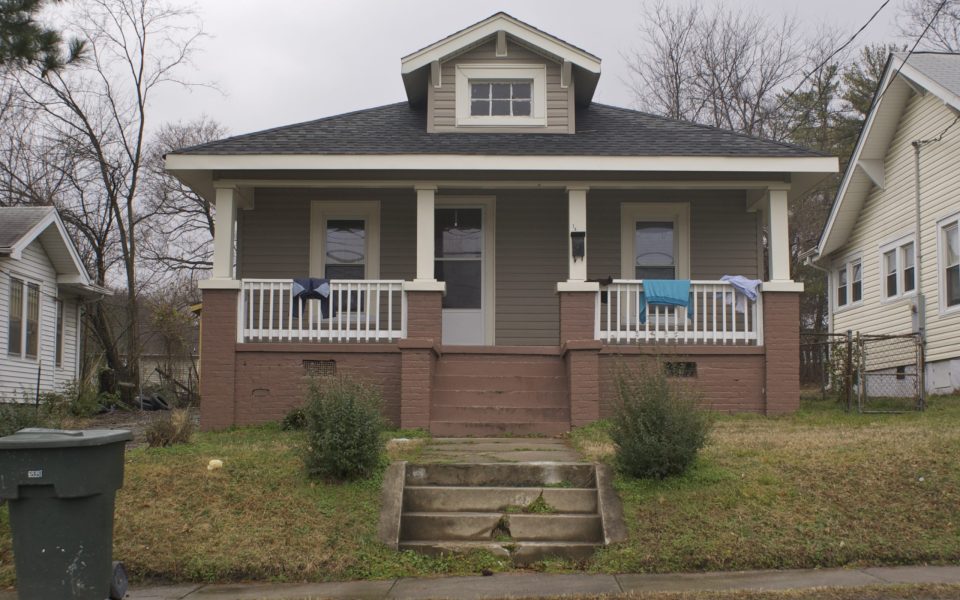by Eric Ginsburg
When Greensboro police raided a house and broke the windows on a drug bust last year, they had no idea small children were living there and that the suspect had already moved out. The admitted blunder led to the city paying thousands in damages and to a change in police protocol.
It started not unlike many other cases — an anonymous tip to CrimeStoppers about someone selling drugs out of a house on a poverty-stricken street just southeast of downtown Greensboro. The tipster gave a specific name to the perpetrator, warning that the man was armed, and police began investigating.
Police said they set up surveillance, though didn’t specify the type, and observed hand-to-hand drug sales at the house on the 700 block of Martin Street. There was existing intelligence on the suspect showing a history of violence with a weapon, and public documents as well as surveillance tied him to the address. But then things changed.
The officers working the case were pulled off to help with a major human-trafficking bust, successfully carried out by multiple law enforcement agencies in early 2014, Deputy Chief Wayne Scott said. When they returned to the Martin Street case after several weeks, the prime suspect wasn’t seen, but police observed continued drug activity at the address.
On the night of March 20, 2014, with a full team because of the suspect’s violent history and the tip that he was armed, police executed a search warrant for the house.
Capt. John Wolfe, who oversaw the raid, said a team outside circled the house, using a common diversionary tactic of breaking windows to disorient people inside and making it easier for police to see in.
But what police didn’t realize was that when they had pulled off the house, their man had moved out. New tenants had legally taken up residence in the home, and among them were three children.
“If we had known these kids were there, we wouldn’t have entered,” Wolfe said, calling the fact “alarming.”
Typically if police know there are children in a home, they’ll work to apprehend a suspect somewhere else. But because of a lack of additional checks once police returned to the case, the important shift in tenants was missed.
Police entering the house were shocked to see a small child. An officer quickly grabbed and shielded the kid while whisking the child outside. As they continued moving through the house, police found two even younger children and their mother — another unexpected factor. The surprise contributed to a breakdown in communication between the police teams inside and outside the house, causing police to break more windows than necessary, Wolfe said.
Police did still make two arrests on various drug charges related to crack and marijuana, Scott said. Their man of interest was nowhere to be found, but the search warrant was still valid and their probable cause was still solid, he said, adding that nobody was harmed in the incident.
Adrienne Rush, who lives next door to the Martin Street house, said the family has since moved and new tenants have taken up residence. But before the raid, the children were a regular presence outside of the house, walking to the nearby Douglas Park or to a store around the corner with a parent. Rush said it’s hard to understand how police didn’t realize there were children living at the house or that the suspect had moved.
Rush also said that during the raid, officers trampled plants in her yard and that despite her complaints to the city, nothing was done about it. She is still hoping for the city to replace the plants.
The landlord of the house where police carried out the search warrant also quickly protested, pointing to the broken windows, damage caused by the shattered glass inside and doors that were busted in. And the police department, then still under chief Ken Miller’s leadership, recommended paying for damages.
“It was the right thing to do,” Scott said, explaining that the city spent $20,000 to repair windows, doors and floors in the Martin Street house. “We went above and beyond to make sure it was safe for the kids.”
Scott said he has never known the city to spend this much for repairs in the wake of a police raid, adding that individual officers were jarred by the episode and tried to make good by bringing the kids toys and spending time with them afterwards. The city also offered resources such as counseling to the family, but Scott said he wasn’t sure whether the family took up the offer.
“Our moral obligation was higher than our legal obligation,” Wolfe said, agreeing that the repairs and resources were the right thing to do.
The whole affair caused the police department to reevaluate its procedures, and it has since implemented new processes with a more extensive checklist before such a raid is conducted, Scott said. Police put a policy in place that if there are gaps in an investigation, they must go back and confirm the intelligence again before taking action.
Scott and Wolfe said they hope with the added steps, something like this won’t happen again.
“It’s always an unknown,” Scott said. “That’s why it’s a dangerous thing that we do for a living. But we learned a lot from it.”
Join the First Amendment Society, a membership that goes directly to funding TCB‘s newsroom.
We believe that reporting can save the world.
The TCB First Amendment Society recognizes the vital role of a free, unfettered press with a bundling of local experiences designed to build community, and unique engagements with our newsroom that will help you understand, and shape, local journalism’s critical role in uplifting the people in our cities.
All revenue goes directly into the newsroom as reporters’ salaries and freelance commissions.


“What IS this mess all about?!!” “Mom, we were just playing cops and tenants.”